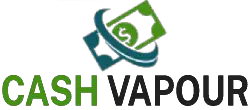When you look at your bank statement, you may come across transactions labeled as “vehicle information.” This charge might seem unfamiliar and raise a few questions.
In this article, we will explore what precisely “vehicle information” means on your bank statement, discuss the reasons behind this charge, and provide guidance on identifying and preventing it from appearing again.
What Is the Vehicle Information Bank Charge?
At its core, the vehicle information bank charge refers to a fee associated with obtaining essential details about a vehicle. These details can encompass various aspects such as the vehicle’s history, identification, or even specific reports related to its condition.

Several circumstances can lead to this charge appearing on your bank statement, and it’s crucial to grasp the underlying reasons.
One common scenario involves individuals who are in the process of selling their cars online. Scammers have devised schemes to exploit car sellers by posing as potential buyers. These scammers express interest in purchasing the vehicle but insist on receiving a car history report beforehand.
They direct sellers to specific websites where they are required to input personal information and make a payment, usually by credit card, to obtain the report. Unfortunately, after sending the report, sellers often find themselves without any further communication from the supposed buyer.
To navigate this situation and shed more light on the charge, it’s essential to understand the techniques scammers employ. They capitalize on domain names, redirecting unsuspecting sellers to sites ending in “.vin.”
This domain might initially appear connected to the vehicle identification number (VIN) of the car.
However, .vin is a relatively new website domain that can be utilized by different groups, not just for wine-related purposes as originally intended. Scammers exploit the association with VINs to trick car sellers into engaging with fraudulent websites.
To understand the meaning of the “Steam purchase” charge on your bank statement, learn more about interpreting your bank transactions.
What Is the Vehicle Information Scam?
The vehicle information scam typically takes various forms, but one prevalent method involves exploiting car owners through email correspondence or online platforms.
Scammers pose as legitimate entities such as the DVLA or interested car buyers, employing cunning tactics to convince individuals to disclose their sensitive information or initiate financial transactions.
One manifestation of the vehicle information scam involves fake DVLA emails informing recipients of a failed vehicle tax payment. These emails often contain alarming language and threats of fines to pressure recipients into disclosing their confidential banking details, including account numbers and expiration dates.

These fraudulent emails employ compelling techniques, such as using the DVLA branding or directing recipients to bogus websites that imitate official DVLA platforms.
Another variant of the scam targets individuals selling their vehicles online. Scammers, posing as potential buyers, express a keen interest in purchasing the car but request a car history report before finalizing the deal.
They direct sellers to specific websites, prompting them to enter personal and financial details, including credit card information, to obtain the report. Once the unsuspecting seller has paid and sent the report, they never hear back from the supposed buyer.
If you’re curious about the appearance of “V12 retail finance” on your bank statement, explore its significance and potential reasons.
How Does the Vehicle Information Charge Look Like?
When reviewing your bank statement, it’s essential to be able to identify the vehicle information charge amongst other transactions. Here is a visual representation of how the charge might appear on your bank statement:
- Date: [Date of the transaction]
- Merchant/Transaction Description: “Vehicle Information” or variations like “Car Detail Report,” “VIN Check,” or “Vehicle History”
- Amount: [Price of the charge]
It’s important to note that the exact representation of the vehicle information charge can vary depending on your bank or financial institution. However, the above format provides a general outline of how the transaction might be listed on your statement.
Identifying the vehicle information charge becomes easier when you pay attention to these key indicators. Here are some additional points to consider when identifying the charge:
- The charge may be categorized under “Specialty Services,” “Vehicle Services,” or similar categories on your bank statement.
- It may feature a website or company name associated with vehicle history reports, VIN checks, or any other car-related services.
- Look for any additional notes or reference numbers that provide more specific information about the transaction.
Remember, the ultimate goal is to distinguish the vehicle information charge from other transactions on your bank statement. Paying careful attention to the details mentioned above will help you quickly spot the charge and understand its purpose.
Example:
- Date: July 15, 2022
- Merchant/Transaction Description: Vehicle Information – Car Detail Report
- Amount: $19.99
In this example, the vehicle information charge is clearly labeled as “Vehicle Information – Car Detail Report” on the bank statement, and it corresponds to a transaction amount of $19.99.
How to Prevent the Vehicle Information Scam
By familiarizing yourself with the appearance and characteristics of the vehicle information charge, you can effectively differentiate it from other transactions on your bank statement.
This knowledge enables you to keep track of your expenses and identify any peculiar charges that may require further investigation.
1. Stay Informed and Educated
Keeping yourself updated about common scams and fraudulent activities in the automotive industry is the first step in prevention. Stay informed about the latest tactics used by scammers, including those related to vehicle history reports and charges.
Regularly check reliable sources such as government websites, consumer protection organizations, and reputable automotive forums to stay up-to-date with emerging scams.
2. Verify Website Legitimacy
Before interacting with any website that offers vehicle history reports or related services, conduct thorough research to ensure its credibility.
Look for official accreditation and certifications, check online reviews and ratings, and verify if the website is recognized by trusted organizations such as the National Motor Vehicle Title Information System (NMVTIS) or the Federal Trade Commission (FTC).
3. Use Approved Providers
When obtaining a vehicle history report, make sure to use approved and reputable providers. The NMVTIS website, vehiclehistory.gov, provides a list of approved providers who adhere to strict standards and guidelines for providing accurate and reliable vehicle information.
Utilizing these approved providers minimizes the risk of encountering fraudulent charges or compromised data.
4. Be Cautious with Unsolicited Requests
Exercise caution when receiving unsolicited emails, messages, or phone calls requesting personal or financial information related to vehicle history reports.
Legitimate businesses or organizations will typically not contact you out of the blue, asking for sensitive details. Avoid clicking on suspicious links or sharing information unless you can verify the authenticity and credibility of the sender.
5. Validate Buyers and Sellers
If you are selling a vehicle, be cautious when dealing with potential buyers. Screen interested buyers, ask for identification, and consider using secure payment methods.
Avoid sharing car history reports until you have verified the credibility of the buyer and the legitimacy of the transaction. Requesting in-person meetings or using reputable online platforms for car sales can also help minimize the risk of falling victim to scams.
6. Monitor Your Financial Statements
Regularly review your bank statements and credit card transactions to detect any unauthorized charges, including vehicle information charges you did not initiate.
If you notice any suspicious transactions, immediately report them to your bank or credit card company. Promptly reporting and resolving fraudulent charges is essential to mitigate potential financial losses and prevent further unauthorized access to your accounts.
7. Report Scams and Fraud
If you encounter any vehicle information scams or fraudulent charges, report them to the appropriate authorities. Contact your local law enforcement agency, the Federal Trade Commission, or your country’s consumer protection agency to help prevent others from falling victim to the same fraud.
Sharing your experience can contribute to the investigation and shutdown of scams, protecting others from potential harm.
If you’re wondering about the nature of “WHO Internet” on your bank statement, uncover insights into this transaction and its possible implications.
Understanding Unauthorized Vehicle Information Bank Charges
The vehicle information scam is a deceitful ploy targeting car owners and sellers, aiming to obtain their personal and financial information for malicious purposes.
By staying informed, adopting a cautious mindset, and recognizing the red flags associated with this scam, you can safeguard yourself against falling prey to scams like the “Vehicle Information” charge.
